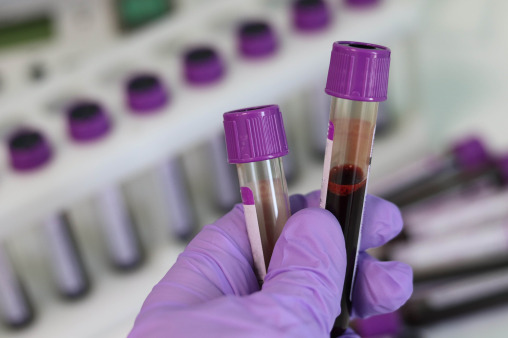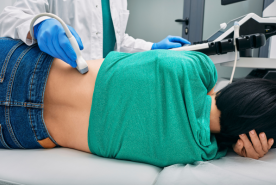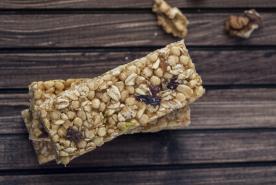June 03, 2020
By Risa Simon, NKF patient advocate and founder of The Proactive Path and Transplantfirst Academy; and Michael Stevenson, NKF National Board Member and patient advocate.
As kidney patients we adhere to routine lab draws — come rain or shine. But add COVID-19 into the mix and the mere thought of standing in line or being seated next to others can give pause to the best of intentions.
On the other hand, imagining the impact of postponing blood tests can be equally concerning. This no-win predicament has caused some kidney patients to question their adherence to specific timelines dictated by their doctors.
What if each medical facility proactively communicated their pledge to follow strict COVID-19 safeguards? Could a heightened awareness and observable evidence ease patient apprehensions?
Let’s examine one patient’s recent visit to the lab. Mike Stevenson, a kidney transplant recipient and NKF advocate from Columbus, Ohio, was very concerned when his pharmacy told him that he had to show evidence of current labs before they would refill his immunosuppressant medications. While Mike was anxious about going in for labs, he didn’t have much choice.
Much to Mike’s surprise, he reported, “I was instructed to send a text upon my arrival and wait in my car until they directed me to enter the lobby wearing a mask.” Mike also mentioned that he never saw other patients when he entered, and his phlebotomist was the only other worker in the lab while he was there. He also noted that his phlebotomist was wearing gloves and a mask. All in all, Mike’s experience was much better than he imagined — a wonderful example of how strategic safeguards can dispel patient fears.
Understanding “safe practices”
Protective practices can go a long way in easing patient fears. That said, before pushing back on timely draws, call your lab and ask them to explain their COVID-19 safeguards. While infection control practices have always been important in the lab, they should proudly announce that they are following CDC guidelines for COVID-19, without exception.
Nonetheless, it’s our job to specifically ask how our labs are complying with COVID guidelines. Are they controlling social distancing in their waiting rooms? Are their phlebotomists wearing protective masks and gloves? Do they require patients to wear masks? How many patients are permitted into the lab at one time?
If you are not convinced your experience will be as smooth or as safe as Mike’s, we have a few suggested steps you can follow. First, after you confirm your lab is offering COVID-safe protections, make sure they haven’t added COVID testing at their site. Second, evaluate their responses to your questions. If they can’t give you the “peace of mind” you were looking for, consider another location or company—or explore remote alternatives.
Home sweet home
A remote approach would be to have your blood drawn from the comfort of your home using a mobile lab service. This is where a certified phlebotomist is scheduled to come to your home to draw your labs from your kitchen table, bedside, or while sitting in your easy chair listening to music or watching TV.
Prefer the phlebotomist never enters your home? Simply request that they meet you on your patio, porch, driveway—or inside your garage. You can even use your car’s window as a workstation by positioning yourself inside your car with your arm resting over the open-window’s ledge.
Whether you decide to have your labs drawn from the inside or outside of your home, never assume that the phlebotomist will be fully prepared for your unique situation. The goal is to ensure they understand your preferences and can safely accommodate your requests.
Communication is key and must work both ways. Be sure the lab has explained their account set up procedures, associated fees, and self-pay requirements. Mobile “draw-only” fees aren’t always covered by medical insurance—and fees can run about $65 per home visit. Be sure you are aware of associated fees to avoid surprises.
Remember: mobile labs often also visit nursing homes, so interview several companies to ensure the one you choose to use can offer you the best protection.
Keep yourself safe!
As the pandemic continues to run its course and states reopen their economies, look after your health! Staying safe is the most important thing you can do. If you need more advice or support, please check NKF’s COVID-19 resource page where they post all the latest information on issues facing the kidney community and watch their Facebook Live discussion series. Consider also contacting NKF’s patient helpline at (855) NKF-CARES, (1-855-653-2273) or nkfcares@kidney.org.
Risa Simon is a preemptive kidney transplant recipient who will be celebrating 10 years of transplant success (and going strong) on June 8, 2020. In addition to volunteering as an NKF peer mentor and advocate, Risa is the founder of The Proactive Path and Transplantfirst Academy where she inspires fellow kidney patients to proactively secure their best life possible –the life Risa now lives. The one word that best describes Risa: “Grateful.”
Mike Stevenson received a kidney from his brother in 1996 after being diagnosed with glomerulonephritis and has been a proponent of trying to cure chronic kidney disease since. Mike serves on the Board for the Central Ohio, division of the National Kidney Foundation and also serves on the National Kidney Foundation Board.

















